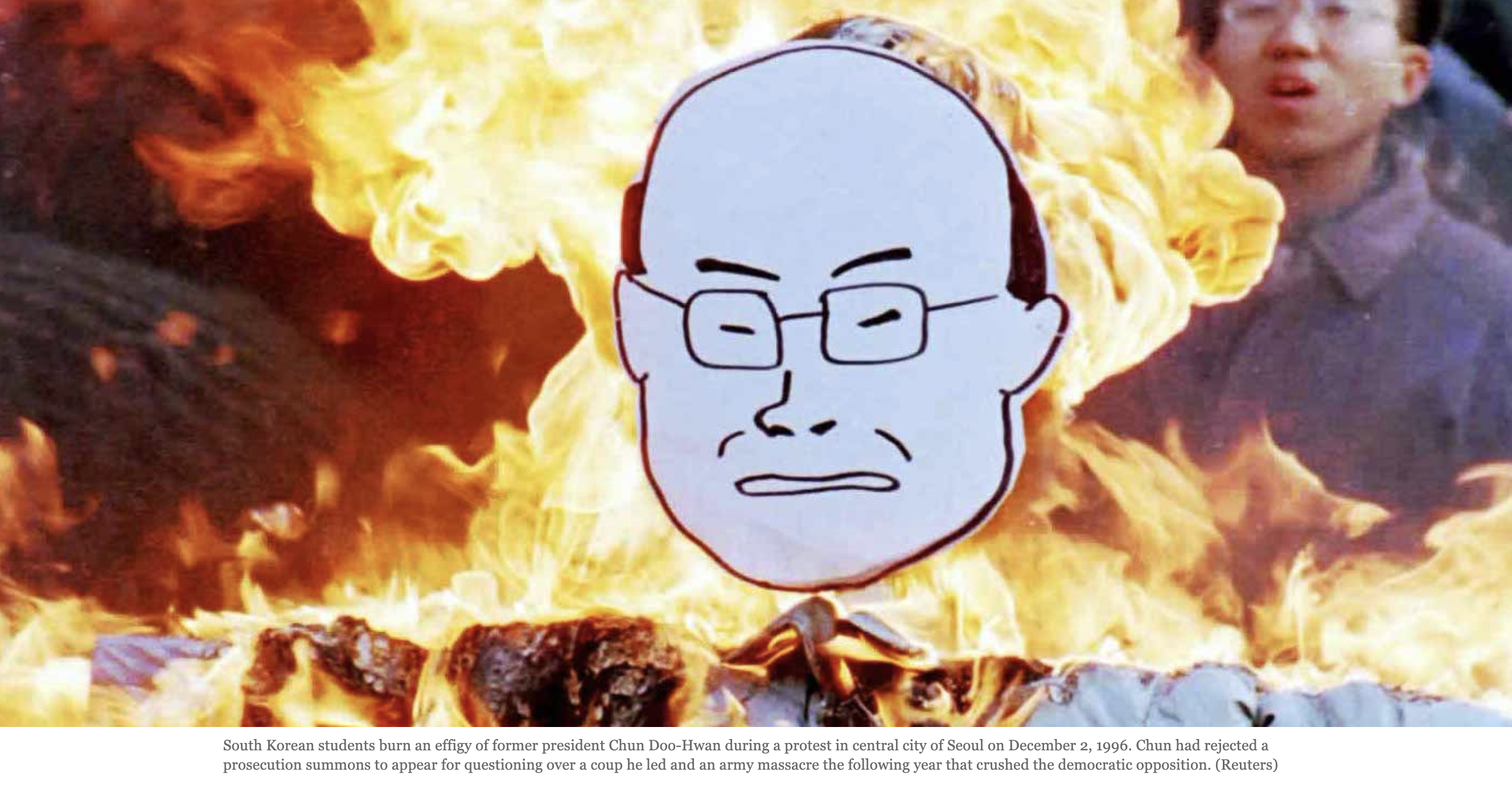“Chun Doo-hwan’s bloody Gwangju legacy is America’s problem too. Upon his death, the time is ripe for Washington to reckon with its role in the South Korean dictator’s brutal rise to power.”
So wrote In-Jeong Kim and I in December, 2021, when the former dictator and military strongman died without a word of apology to the city he tried to crush. This article appeared in Responsible Statecraft, a publication of the Quincy Institute for Responsible Statecraft in Washington.
 We are two journalists, one Korean, the other American, and have spent much of our careers reporting on the events leading up to Gwangju as well as the dramatic days following the massacre, when a citizens militia drove Chun’s paratroopers out of town and Gwangju’s citizens held the city as a liberated zone. Led by a young, charismatic organizer named Yoon Sang-won, the fighters sought a negotiated truce with Chun’s military and asked the U.S. ambassador, William Gleysteen, to intercede; on instructions from Washington, he refused. After the takeover by Army troops released from the joint command, hundreds of people were rounded up and thrown into military prisons.
We are two journalists, one Korean, the other American, and have spent much of our careers reporting on the events leading up to Gwangju as well as the dramatic days following the massacre, when a citizens militia drove Chun’s paratroopers out of town and Gwangju’s citizens held the city as a liberated zone. Led by a young, charismatic organizer named Yoon Sang-won, the fighters sought a negotiated truce with Chun’s military and asked the U.S. ambassador, William Gleysteen, to intercede; on instructions from Washington, he refused. After the takeover by Army troops released from the joint command, hundreds of people were rounded up and thrown into military prisons.
Since the beginning, we have focused on the U.S. role in the uprising. We were the first to document the puzzling decision by the Carter administration to approve Chun’s plans, even before his coup and the uprising, to use military units against the huge pro-democracy demonstrations that rocked Korean cities in the spring of 1980. We broke the story that Carter’s White House agreed at the height of the uprising to allow the U.S.-Korean Combined Forces Command to cooperate with Chun to retake the city. Now, with Chun gone, we believe the time is ripe for the U.S. government to admit that it was partly complicit in Chun’s assault on the city and his rise to power.
To read our analysis, click here.